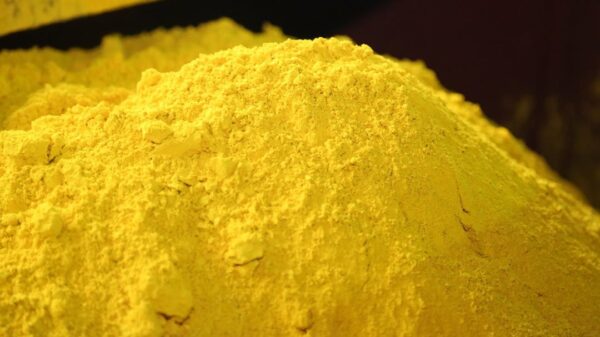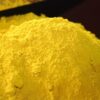Norway has taken a step forward to be the first country to start mining critical minerals in the seafloor after its minority government and two opposition parties signed a deal that would allow exploration in the Arctic region.
On Tuesday, Terje Halleland (Progress Party), Aleksander Oren Heen (Center Party), Marianne Sivertsen Naess (Labour Party) and Bard Ludvig Thorheim (Conservative Party) gave a joint press conference on the deal outlining the extraction of seabed minerals in the Arctic.
The original proposal was presented last September where it was discussed how deep-sea mining could help Europe reduce its dependence on China for the supply of critical minerals.
The proposed area includes 280,000 square kilometres of ocean terrain between Jan Mayen Island and the Svalbard archipelago. Under the proposal, companies may choose smaller zones to explore and produce from.
Under the amended proposal, the government parties place stricter environmental requirements during the exploration phase. The Norwegian parliament will discuss the new proposal on Jan. 4 followed by a vote.
Thorheim told the media that the standards for environmental requirements had been set high in the new proposal and should become the international standard for others wanting to mine the seabed.
“At the same time, it is important that it is a framework that is predictable for commercial players, on which we rely on for these activities,” said Thorheim.
“If the demands are too steep and too complicated, there won’t be any interest, but at the same time it is also in these companies’ interest to partake in an activity that has a good reputation and adheres to demands on sustainability.”

Map via Barentswatch.
Government-sponsored survey finds abundant sources of rare minerals
The government’s latest survey of the area found polymetallic sulphides around 3,000 metres deep, which is an area where seawater meets magma coming up through cracks and flushing back dissolved metals and sulphur. Norwegian Petroleum Directorate (NPD), which conducted the study last January, said that metals found included magnesium, niobium, cobalt and other rare earth minerals.
The survey found there are approximately 38 million tonnes of copper and 45 million tonnes of zinc in the polymetallic sulphides. It also found sources of neodymium, yttrium and dysprosium in the manganese crusts grown on the ocean bedrock over millions of years.
“Costly, rare minerals such as neodymium and dysprosium are extremely important for magnets in wind turbines and the engines in electric vehicles”, the NPD said.
In July, the Council of the International Seabed Authority (ISA) put a moratorium on seafloor mining but kept an open loophole that would allow it to start after some time. The authority established that the applications must be considered and provisionally approved after two years from the application.
There are currently no methods or machinery able to mine the ocean but some technology is being tested. This tech includes robots reaching the ocean floor to collect samples.
Canadian firm The Metals Company (NASDAQ: TMC) says that opening sea mining would be less damaging than land-based mining and help the energy transition many countries are seeking. Other companies such as Loke Marine Minerals –backed by the oil company Technip FMC (NYSE: FTI) and maritime group Wilhelmsen– welcomed the new proposal.
“We need to have a fact-based evaluation of deep sea minerals as a provider of critical minerals for the green energy transition,” Loke CEO Walter Sognness said.
The decision by the Scandinavian country to try mining the ocean hasn’t been taken lightly. Protestors have shown up at Norwegian embassies expressing concerns about the impact on ocean ecosystems.
Non-profit organization World Wildlife Fund said the decision damaged the country’s reputation and hopes parliament will block the initiative. Alphabet Inc Class A (NASDAQ: GOOGL) which owns Google, BMW (ETR: BMW), AB Volvo Group (STO: VOLV-B) and Samsung SDI (KRX: 006400) signed up to a WWF call this year to place a moratorium on deep-sea mining and committed to not sourcing any minerals from the ocean.
The EU Commission also expressed concerns about the environmental consequences and over 800 ocean scientists have called for a pause on deep sea mining globally.
Read more: Asteroids could be the primary source of precious metals in the next 40 years
Read more: Canadian federal government to invest $1.5B in critical minerals infrastructure fund
What could be the environmental impact of sea mining?
In the Arctic ocean floor, there is no light and temperatures are near freezing, however, life still exists.
Residents of the ocean floor include corals and other microorganisms but ecosystems have barely been researched, scientists argue. Companies say they will extract minerals from inactive hydrothermal vents, but scientists say ecosystems may be destroyed before they are even discovered.
For example, a recent study found that from a total of 5,578 species recorded in the Clarion-Clipperton Zone (equatorial eastern Pacific), 92 per cent were new to science.
Mining the seafloor will also have immense costs when it comes to restoring the damage.
A report published in June by Planet Tracker found that the cost of restoring the damage deep sea mining will be is so high that no government nor company will be able to afford it. It found that the impact would be 25 times greater than land-based mining.
Ocean nodules take millions of years to form and installing artificial clay nodules to replace them would cost between US$5.3-$5.7 million per square kilometre versus the $2.7 million it would cost to mine them.
“Any deep sea activity is hugely expensive. In Norway, we’re also talking about the High Arctic,” Senior advisor with the WWF Kaja Loenne Fjaertoft said following the release of the report.

Graph by Fauna & Flora International 2021 via Planet Tracker.
Martin Sveinssønn Melvær of the Norwegian Bellona environmental group said that mining the sea floor is completely contrary to scientific recommendations and believes “it is a dangerous derailment in the fight against climate change to open up seabed minerals.”
Greenpeace Norway head Frode Pleym said that it is a disaster for the ocean and shameful for the Scandinavian country. “The Norwegian government is not only ignoring hundreds of concerned scientists but also showing disregard for its international obligations and national environmental legislation,” said Pleym.
“By opening up for deep sea mining, Norway has lost all credibility as a responsible ocean nation that signed the UN Ocean Treaty.”
natalia@mugglehead.com













